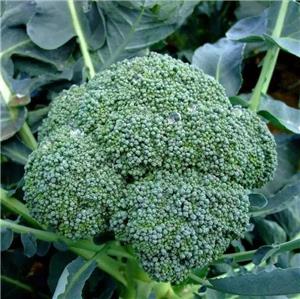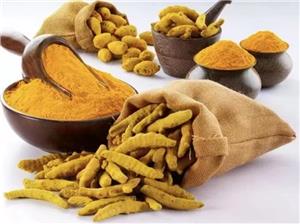-
0811-2021
Many countries are prioritizing health and climate change, but lack funds to take action
Countries have begun to prioritize health in their efforts to protect people from the impact of climate change, but only about a quarter of those recently surveyed by the World Health Organization have been able to fully implement their national health and climate change plans or strategies. Countries report that a lack of funding; the impact of COVID-19; and insufficient human resource capacity are major barriers to progress.
-
2710-2021
Top economists call for radical redirection of the economy to put Health for All at the centre in the run-up to G20
The COVID-19 Pandemic has brought into focus the stark reality of the large and growing inequities across the globe in access to health care and health products: for every 100 people in high-income countries, 133 doses of COVID-19 vaccine have been administered, while in low-income countries, only 4 doses per 100 people have been administered.
-
1410-2021
5 Reasons Why Creatine Monohydrate Is the Best
Creatine has been studied extensively as a dietary supplement for many years. In fact, more than 1,000 studies have been conducted, which have shown that creatine is a top supplement for exercise performance (1Trusted Source). Almost all of them used the same form of the supplement — creatine monohydrate. What’s more, most scientists who study supplements believe that monohydrate is the best form. Here are five science-backed reasons why this form is the best.
-
0107-2021
Alpha-Lipoic Acid (ALA) and Diabetic Neuropathy
Alpha-lipoic acid (ALA) is a possible alternative remedy to treat the pain associated with diabetic polyneuropathy. Neuropathy, or nerve damage, is a common and potentially serious complication of diabetes. Nerve damage is permanent, and its symptoms can be difficult to alleviate. Polyneuropathy involves the peripheral nerves of the body. It’s the most common form of neuropathy in people who have diabetes, and it causes foot and leg pain.
-
1606-2021
Monk Fruit vs. Stevia: Which Sweetener Should You Use?
Monk fruit and stevia are nonnutritive sweeteners. This means they have little-to-no calories or nutrients. Both are marketed as natural alternatives to sugar. This is true to a point. Monk fruit is typically not as refined as stevia, but may contain other ingredients. The stevia you buy in the grocery store is vastly different from the stevia you grow in your backyard. Even so, stevia and monk fruit sweeteners are more natural choices than artificial sweeteners containing aspartame, saccharine, and other synthetic ingredients. If you’re diabetic or trying to lose weight, read monk fruit or stevia product labels carefully to see if higher-calorie and higher-glycemic sweeteners were added. In the end, it all comes down to taste. If you don’t like the taste of monk fruit or stevia, their pros and cons don’t matter. If possible, try them both to see which you prefer.
-
1006-2021
How Green Tea Can Help You Lose Weight
Green tea is one of the healthiest beverages on the planet. It is loaded with antioxidants and various plant compounds that may benefit your health. Some people even claim that green tea can increase fat burning and help you lose weight. This article examines the evidence surrounding green tea and weight loss.
-
3105-2021
10 Benefits of Green Tea Extract
Green tea is one of the most commonly consumed teas in the world. Green tea extract is its concentrated form, with just one capsule containing the same amount of active ingredients as an average cup of green tea. Like green tea, green tea extract is a great source of antioxidants. These have been credited with a range of health benefits — from promoting heart, liver, and brain health to improving your skin and even reducing the risk of cancer (1Trusted Source). What’s more, many studies have looked at the ability of green tea extract to aid weight loss. In fact, many weight loss products list it as a key ingredient. Despite these benefits, it’s important to know that green tea extract can also be toxic when taken in excess, so always talk with a health professional if you’re interested in taking these supplements. This article explores 10 science-based benefits of green tea extract.
-
2505-2021
The Different Stages of Losing Weight: Fat Loss vs. Weight Loss
If you’re like most people, you may be eager to know when you can expect to see results after embarking on your weight loss journey. At the same time, you may also want to know whether the weight you’re losing is coming from fat rather than muscle or water. This article reviews the stages of weight loss, the difference between weight loss and fat loss, and tips for preventing weight regain.
-
3004-2021
9 Benefits of Coenzyme Q10 (CoQ10)
Coenzyme Q10, also known as CoQ10, is a compound that helps generate energy in your cells. Your body produces CoQ10 naturally, but its production tends to decrease with age. Fortunately, you can also get CoQ10 through supplements or foods. Health conditions like heart disease, brain disorders, diabetes, and cancer have been linked to low levels of CoQ10 (1Trusted Source). It is not clear whether low levels of CoQ10 cause these diseases or are a result of them. One thing is for certain: plenty of research has revealed CoQ10’s wide range of health benefits. Here is all you need to know about CoQ10.
-
1210-2021
WHO’s 10 calls for climate action to assure sustained recovery from COVID-19
Countries must set ambitious national climate commitments if they are to sustain a healthy and green recovery from the COVID-19 pandemic. The WHO COP26 Special Report on Climate Change and Health, launched today, in the lead-up to the United Nations Climate Change Conference (COP26) in Glasgow, Scotland, spells out the global health community’s prescription for climate action based on a growing body of research that establishes the many and inseparable links between climate and health.




